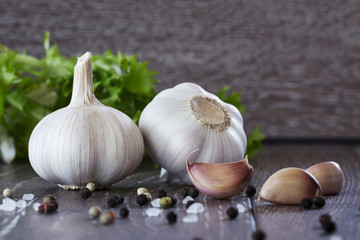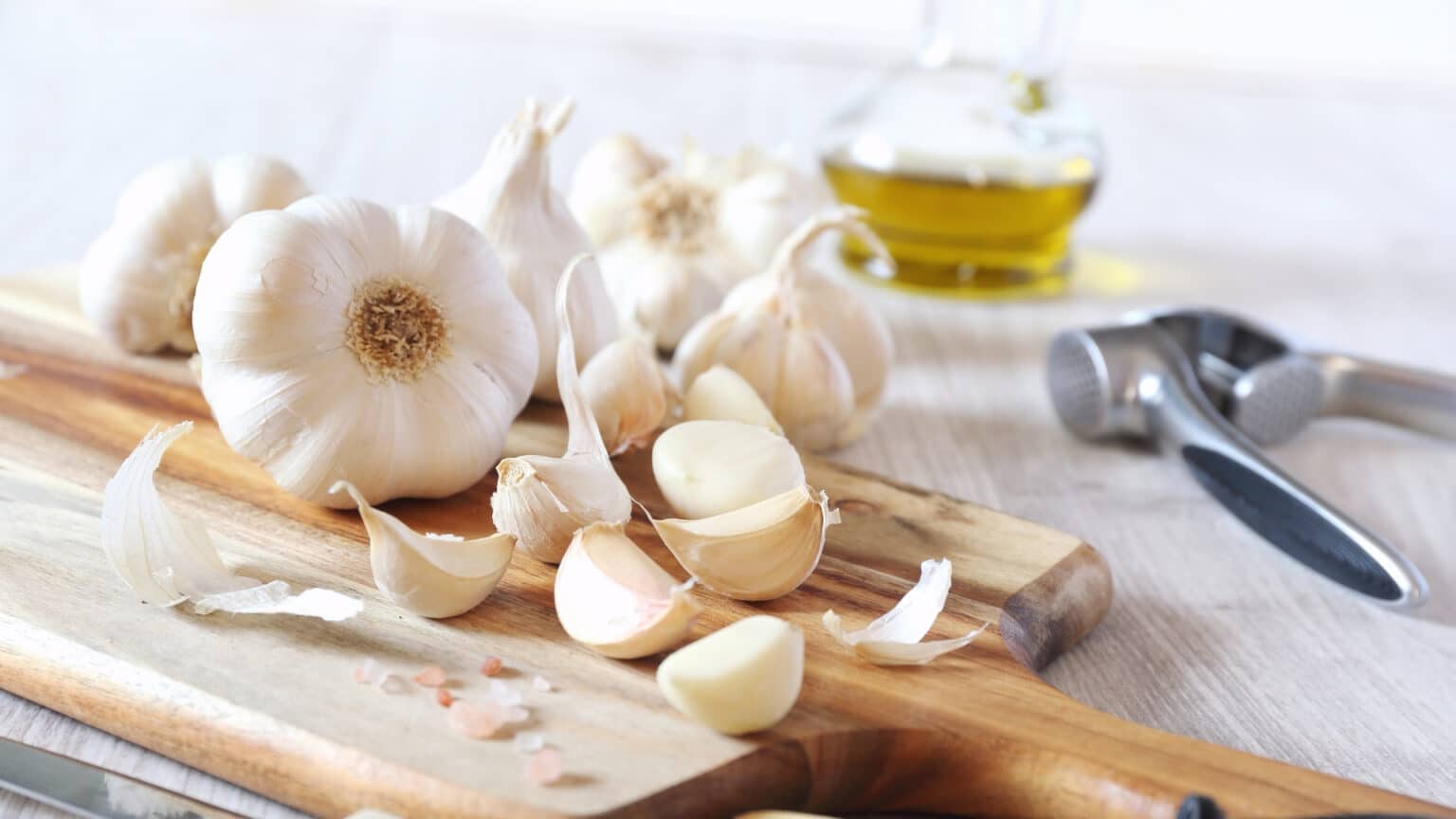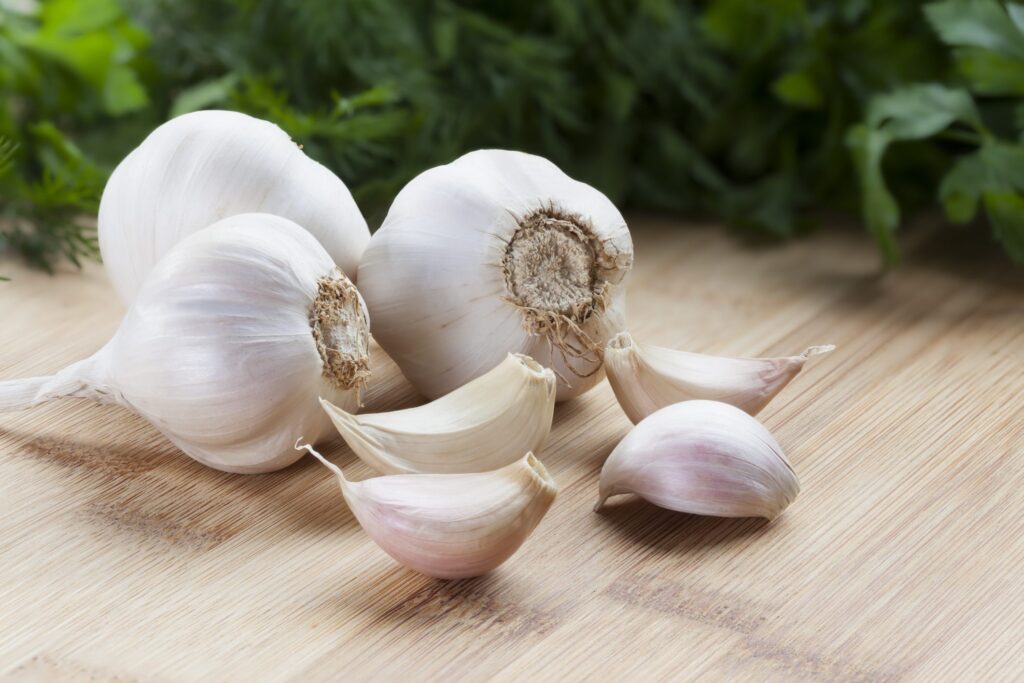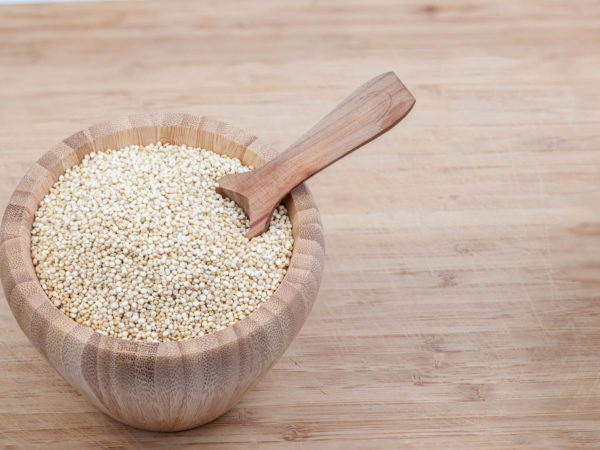Garlic is a popular remedy among those turning to complementary and alternative medicine. Its antimicrobial, anti-inflammatory, and antioxidant properties are well known. But if your focus is on heart health or metabolic problems, what is it that these smelly bulbs can do? Besides its ability to counter oxidative stress and possibly bring down your blood pressure, garlic is also being explored for its possible cholesterol-lowering effects. We look at some of the evidence. The promise of garlic for lowering cholesterol is undeniable if you look at studies.

Can Bring Down Total Cholesterol, LDL Cholesterol, And Triglyceride Levels
- Aged garlic extract (AGE) supplementation was seen to help bring down total cholesterol by as much as 7 percent in one study. When men with hypercholesterolemia took this extract, their low-density lipoprotein (LDL) cholesterol came down by 10 percent.
- Another study revealed that taking garlic in the form of 2 daily doses of garlic powder tablets (equivalent to 400 mg of garlic/1 mg of allicin) for 6 weeks helped bring down total cholesterol by 12 percent and LDL cholesterol by 17 percent in subjects with a cholesterol problem. Triglyceride levels also reduced by 6 percent.
- Taking half a clove or a clove of garlic, or the equivalent of this in other forms, has been seen to bring down total cholesterol levels by as much as 9 percent in people whose cholesterol levels were greater than 5.17 mmol/L (200 mg/dL) in another study.
- An animal study found that giving test subjects raw aqueous extract of garlic reduced not just their total and LDL cholesterol, but also brought down their triglyceride levels.
- That said, there are also studies which peg the results at a much lower figure, saying you should expect a total cholesterol-lowering effect of 4 to 6 percent, and not twice that amount as some studies have shown.
Can Give Good HDL Cholesterol A Boost

While garlic may have potential to lower levels of total cholesterol, LDL cholesterol, and triglycerides, the good news is it may not adversely impact levels of the good high density (HDL) cholesterol in your body. Some studies record a 15 percent rise in HDL levels with garlic supplementation for 6 weeks. Researchers in another small study found that after taking garlic extract for 4 months, people with high cholesterol levels saw an improved blood lipid profile, with levels of good HDL cholesterol actually going up.
But The Results May Be Short-Lived
As heartening as all this might seem, the effects of garlic on your cholesterol are not long lasting. In other words, you’ll probably need to keep up that garlic intake if you need to see continued benefits or results from it. In one study, a significant reduction in both total and LDL cholesterol levels was seen at the 8-week and 12-week mark after using standardized dried garlic powder. But the researchers found that the lowered levels were no longer maintained after 6 months.
Results May Also Vary Depending On Your Current Cholesterol Levels
Your current cholesterol levels could also play a part in how much of a difference garlic intake could make to you. In one piece of research on people with cholesterol in excess of 200 mg/dl (above normal), the researchers remarked that taking garlic in the form of tablets with 800 mg garlic powder (1.3% alliin) seemed to show best cholesterol-lowering effects on those who had an initial total cholesterol level clocking in at between 250 and 300 mg/dl. So the magnitude of change may depend on your cholesterol levels – something studies haven’t calibrated fully yet.
Garlic Intake May Be Problematic For Some
Some people may have mild side effects like bad breath, heartburn, flatulence, and gastric disturbances from taking garlic. But for the vast majority, having a clove or two as part of your normal diet shouldn’t cause you problems (beyond a little garlic breath!). Taking larger amounts as a supplement must, however, be run by your doctor first.
As with anything taken in large amounts or as a supplement, you will need to be mindful of other health conditions or medication that could interact with the garlic or garlic extract and affect your body. For instance, if you are taking any kind of anti-inflammatory drugs or anticoagulants, you should be wary of possible drug interactions. Garlic tends to inhibit platelet aggregation – which basically means your blood will take longer to clot and you may bleed longer than normal. If you are already on medication that has this effect, like anticoagulants, for instance, it could amplify these effects, causing problems with clotting and putting you at risk of excessive bleeding.
The Verdict: Garlic Helps But Won’t Do It Alone!
Some researchers say that taking garlic as a supplement with a view to lowering lipid levels cannot be widely recommended as the evidence isn’t strong enough. They warn that you shouldn’t expect to see a miraculous change in your cholesterol numbers. It might help, but may not be good enough to warrant going off any of your medication.
Incidentally, there has been a lot of debate around whether high cholesterol levels do have an adverse effect on your heart health and longevity. While the cholesterol–heart disease conundrum is yet to be resolved, what is emerging is that you need to keep an eye on chronic inflammation that your body is subjected to, be it through processed and refined foods, stress, or a sedentary lifestyle. One hypothesis considers chronic inflammation the trigger for increased cholesterol production. High cholesterol or hypercholesterolemia is, in turn, also linked to increased inflammation. It may also affect your liver and kidney and increase the risk of obesity and diabetes. Fortunately, garlic may have a positive impact here thanks to its anti-inflammatory properties, helping counter the inflammation.
The bottom line? Don’t expect garlic to be a miracle cure or a free pass to ignore your cardiovascular health. That said, it is a good addition to your diet as part of a holistic plan to improve your cholesterol levels, alongside lifestyle changes and other dietary interventions.


